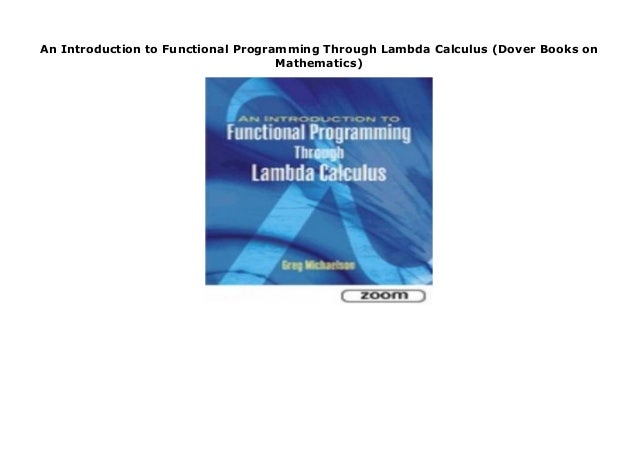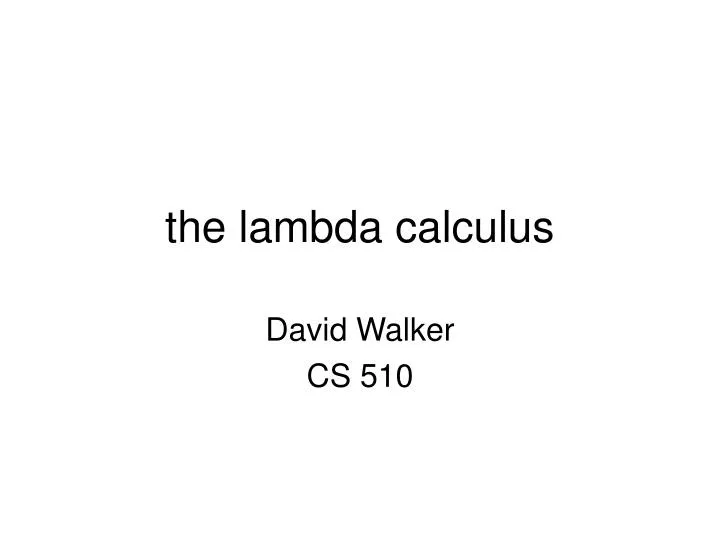
This is, of course, because we did an invalid $\beta$ reduction. yy$, which is clearly not what we expect intuitively. If you permitted an immediate $\beta$-reduction, you would get the following: Thus, it is not possible to do a $\beta$ reduction immediately: we must first do an $\alpha$-conversion. x y$ but $y$ is a bound variable in $\lambda y.
#Alpha reduction in lambda calculus free
In this case, we see that $y$ is a free variable in $\lambda x. The reduction that confused you is that of $(\lambda x. y x) y \to_\beta yx$ with no further opportunities for reduction. Your first reduction would thus proceed: $(\lambda x. What is relevant is that free occurences of a variable $t$ in the term $a$ do not become "captured" by $\lambda$-abstractions in $e$. Whether $x$ is free in $a$ is completely irrelevant.

Here, $ e$ means a simple replacement of all occurences of $x$ in $e$ by $a$. e) a \to_\beta e$, where $x$ is a variable and $a$ and $e$ are terms, holds whenever the no free variable of $a$ is a bound variable in $e$. The rule from Write you a Haskell is incorrect. Am I correct that the renaming only applies when the $\beta$-redex abstraction body is itself another abstraction? Doing alpha conversions and beta reductions, Lambda Calculus - Mathematics Stack Exchange Doing alpha conversions and beta reductions, Lambda Calculus Asked 8 years ago Modified 6 months ago Viewed 1k times 2 I am attempting to perform Lambda calculations.The last case to avoid the naive substitution that would fundamentally alter the meaning of the following Handle the case where a substitution conflicts with the names of free variables. We define Alpha-Reduction (-Reduction) as the following relation. practical: With a little syntax sugar, lambda calculus becomes a practical programming language.

Spare a thought for students struggling to make Turing machines do simple tasks.
#Alpha reduction in lambda calculus how to
The fundamental issue with using locally named binders is the problem of name capture, or how to The basic principle of functional programming languages is the -calculus, which was. simple: Here’s how to multiply two numbers in lambda calculus: m. I am struggling a little bit with some inconsistencies on different texts on when to use $\alpha$-conversion to avoid capture in $\beta$-reduction.įor example, in Lectures on the Curry-Howard Isomorphism, it makes no mention of any capture restrictions in its definition of $\beta$-reduction. When this happens, we say that $F$ and $G$ are $\eta$-equivalent, or that $F$ is the $\eta$-reduction of $G$, or that $G$ is the $\eta$-expansion of $F$, or that $F$ and $G$ are $\eta$-conversions of one another.I've been learning Lambda Calculus in my free time recently to try and learn how to make programming languages & interpreters. But the behavior of $F$ and $G$ is the same, in the sense that for every term $x$, $F x $ has a normal form if and only if $ G x$ does, and if so these normal forms are the same. $F$ is not the same term as $G$: One is four symbols long, the other ten symbols. $G$ is the function that takes an argument $x$ and applies the identity function to it. $G$ and $F$ might be completely different lambda-terms, but it is the case that $Fx=Gx$ for every $x$, so the functions represented by $F$ and $G$ are equal. F y$$ This function also takes an argument $x$ and yields $F x$. Now consider the following function $G$: $$\lambda y.


This function takes an argument $x$ and yields $F x$.


 0 kommentar(er)
0 kommentar(er)
